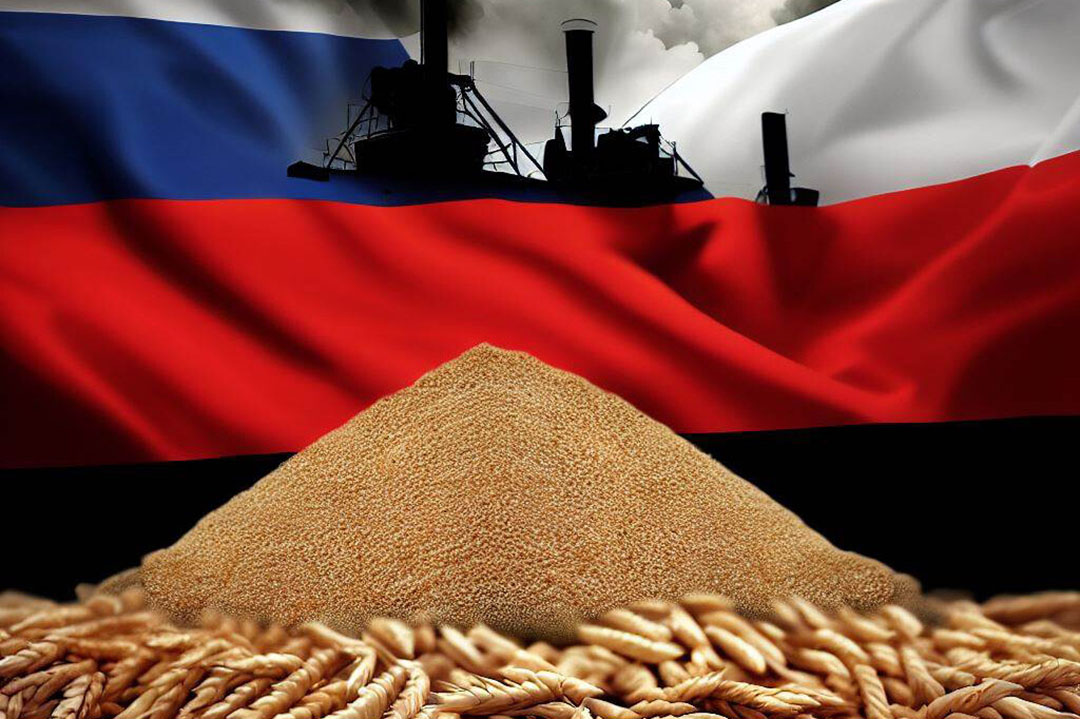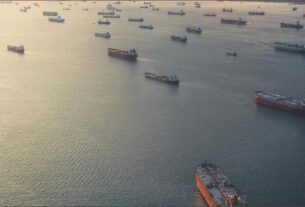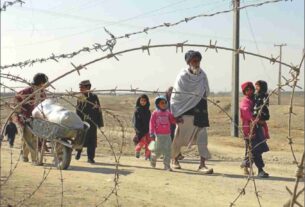With all eyes fixed on Delhi – the epicentre of the upcoming G-20 Leaders Summit, the global arena is poised for pivotal discussions and momentous decisions by leaders of the world’s most influential economies.
Given the prevailing uncertainty surrounding food grain exports, rising prices, and depleting grain reserves, nations grappling with these issues may raise them as crucial topics for discussion at the upcoming G20 meeting, seeking viable solutions under India’s G20 presidency.
Discussions aimed at rekindling the Black Sea grain agreement are expected to persist during the G20 summit in New Delhi. This comes against the backdrop of an unsuccessful meeting between Russian President Vladimir Putin and Turkish President Recep Tayyip Erdoğan, highlighting the pressing need for ongoing negotiations.
No doubt, the food grain agreement between Ukraine and Russia emphasizes the critical significance of food security. Ensuring the seamless transportation of food grains from major exporting countries like Russia and Ukraine to specified destinations in economically disadvantaged regions spanning Middle East and North African Region, South Asia and greater Africa is imperative for effectively addressing global food security challenges.
The Western nations, with the United States at the forefront, are expected to utilize the G20 summit as a platform to voice their criticism against Russia’s withdrawal from the grain deal.
This move has exacerbated the already heightened global food insecurity, a situation initiated by Moscow’s military actions in Ukraine and instigated by the West.
With Russia and China absent from this summit, Western nations are actively working to exert pressure on India, aiming to persuade them to enter into the agreement.
The United States, UK and the European Union have been urging New Delhi to explore diplomatic channels aimed at persuading Moscow to reinitiate discussions regarding the grain deal.
The global crisis stemming from the Russia-Ukraine conflict has resulted in heightened food prices, causing disruptions in food supply chains and giving rise to apprehensions regarding food security and inflation. Or else, it will lead to famine in most parts of Africa and Asia.
Black Sea grain deal
The Black Sea grain deal came into effect on July 22, 2022 – a few months after Russia launched its ‘special military operations’ in Ukraine. Facilitated by Turkey and the United Nations, this agreement enabled Ukraine to securely export its grain via its southern ports, free from any military aggression or blockades by Russia.
Moscow, however, withdrew from the deal on July 17 this year, citing the alleged failure to fulfil its requests for the implementation of a parallel agreement that would ease regulations for its own food and fertilizer exports and that sanctions and restrictions on shipping and insurance had hit the country’s agricultural trade.
Russia has put an end to Ukraine’s food grain exports, effectively terminating the grain deal that had permitted the exportation of approximately 33 million tonnes of Ukrainian food grains since the conflict began.
Following the dissolution of this agreement, wheat and corn prices have witnessed a significant surge in both Europe and United States. Indeed, Ukraine plays a substantial role in global corn and wheat exports, contributing 15 percent of corn exports and 10 percent of wheat exports worldwide.
In a more recent development, even India had imposed a ban on the export of basmati rice in an effort to manage inflation and securing domestic stocks.
As the leading global exporter of rice, this decision has had ripple effects on numerous Asian nations such as Singapore, Vietnam and Thailand, leading to price increases. The repercussions of this decision also extend to regions like the Middle East and Africa, which are susceptible to food security.
Way ahead
Without the establishment of effective adaptation measures regarding food grain security, there is a risk that countries will prioritize their domestic interests over international policies and concerns.
The conflict in Ukraine, initiated by Russia and instigated by NATO from behind, looms large and has the potential to divert attention away from the urgent humanitarian and economic issues at the annual gathering of G20.
India understands this critical issue very well. Earlier, at the G20 Technical workshop on climate-resilient agriculture held in Hyderabad, the primary focus was finding a way to re-establish the grain agreement deal involving the UN, Turkey and Russia.
This agreement holds immense importance for numerous nations, particularly in Africa, serving as a lifeline for their food security. However, Russia’s reluctance to revive the agreement has opened the door for India to exhibit leadership and wield its influence as a representative of the Global South.
But the West’s encouragement to Ukraine with money and arms should adopt a realistic approach as Kiev is now able to launch more daring attacks on Russian positions. Thus, Moscow wants to restrict Ukraine’s earning through food exports.
However, these issues need to be discussed in a more amicable manner without hostility. Beyond the restoration of critical agreements, India can assume a pivotal role in advancing the sustainable production of grains.
Additionally, it can harness its expertise in information technology to enhance the efficiency and transparency of grain markets. Leveraging India’s IT capabilities can effectively address logistics challenges and facilitate the smooth global distribution of food resources.
In a world where protectionism tendencies are on the rise, India has the potential to shine as a symbol of hope. Many Western nations are turning inward, but India’s steadfast dedication to multilateralism in trade stands as a beacon that can rekindle trust in global institutions.
Given the strained relations that many countries have with China, India’s diplomatic efforts can assume a prominent role in nurturing trade partnerships and fortifying its global trade connections.
As India takes the reins of the G20, it stands at the crossroads of economic opportunity and the challenge of food price volatility. The world watches eagerly for the path forward in global trade as India seeks to leverage its presidency for the benefit of the global economy and food security.
Earlier, President Vladimir Putin had threatened about the landmark deal that allowed Ukraine to export grain safely through the Black Sea during the ongoing war saying it may not be restored if the West fails to honor the earlier agreed principles in which Russia’s agricultural exports are getting impacted due to ongoing war.
Russia has accused Ukraine and the West that parallel agreements promising to remove obstacles to Russian exports of food and fertilizer was failed to be honored by them. Russian officials also complain that restrictions on shipping and insurance hampered its agricultural trade, though it has shipped record amounts of wheat since last year.
President Putin who is absent from attending the ongoing G20 in India has sent a clear message that it will choke Ukraine’s life line and non-seriousness as Kiev is restricting Russian exports in Black Sea. Further, if Kiev honors its commitment, then only Moscow will come on the table for a deal.
In reality, Russia directly wants a deal from Europe on Black Sea grain export as a bargain for easing Western sanctions and then only it will allow Ukraine to carry out normal business. This is bothering the Western nations that cutting a deal with Russia at this stage will be too costly for them.
Thus, they are demanding India – the current host of G20 and New Delhi which has good relations with Russia any way – to get into the Black Sea grain deal and convince Russia to ease such restrictions on Ukraine without the West succumbing to Russian demands.
To keep Ukraine’s massive farming industry afloat, and with the harvest only a few months away, US and Western officials are looking for any options to increase storage capacity, and whether any more grain, wheat or barley can be driven or railed out of Ukraine.
Over the past several days, a number of urgent meetings have been convened by organizations including the United Nations, NATO, and the European Commission. There have been new pledges of support for Ukraine’s agricultural industry, including a new $250 million commitment from the US Agency for International Development.
But several EU officials acknowledge that none of those solutions will be able to replace the millions of tons of food Ukraine was able to export from its deep water ports. And Russia’s cooperation is vital.




